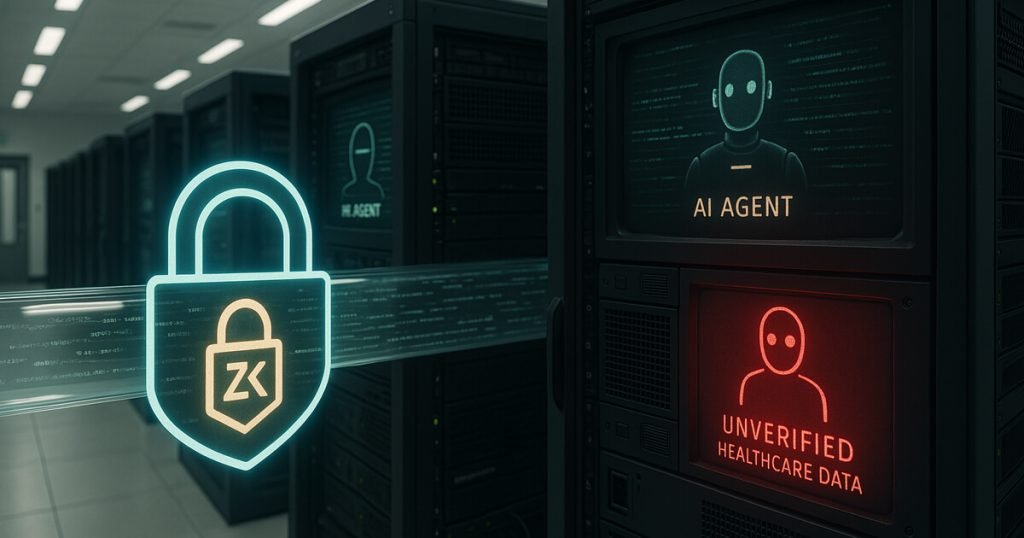Title: Unlocking AI’s Potential: The Role of Zero-Knowledge Proofs in Ensuring Trust and Security
Artificial intelligence (AI) has transitioned from a mere concept in science fiction to a tangible force reshaping various sectors, including healthcare, finance, and logistics. With the rise of autonomous AI agents capable of functioning with minimal human intervention, industries are witnessing unprecedented efficiency and innovation. However, this evolution is accompanied by significant risks. As these AI agents communicate and process sensitive data, ensuring their compliance with established protocols becomes crucial. The potential for data breaches, such as the unauthorized sharing of confidential medical records or leaked corporate strategies, poses severe threats that demand immediate attention.
The Need for Responsible AI Management
The rapid integration of AI into critical areas necessitates a robust management system. Optimistic assumptions about AI behavior, similar to how optimistic rollup mechanisms like Arbitrum operate under the belief that transactions are valid until disproven, may lead us into a precarious situation. AI agents are now entrusted with high-stakes tasks—such as managing supply chains and diagnosing medical conditions—making the absence of strict oversight a ticking time bomb. The emergence of zero-knowledge proofs (ZKPs) offers a practical solution to verify AI activities while safeguarding the privacy of sensitive data. This technology enables the verification of compliance and governance without compromising the agents’ operational autonomy.
Enhancing Agent Communication Through Privacy and Verifiability
In environments where AI agents collaborate, like global logistics operations, the exchange of sensitive information is ubiquitous. However, without stringent privacy measures, this collaboration risks exposing trade secrets to competitors or regulatory bodies. ZKPs serve as an innovative solution, allowing these agents to demonstrate compliance with governance standards without revealing their proprietary data. This paradigm shift is crucial for scaling AI ecosystems, as it ensures both accountability and privacy are maintained.
Addressing Challenges in Distributed Machine Learning
One of the most significant advancements in AI is the rise of distributed machine learning (ML), which trains models across fragmented datasets. This advancement holds the potential to revolutionize privacy-sensitive fields like healthcare by enabling institutions to collaborate on ML models without disclosing raw patient information. However, the lack of verification for each node in the network raises concerns about the integrity of the training process. The introduction of ZKPs addresses this concern by allowing for cryptographic verification of each node’s compliance with its training requirements. This capability not only fortifies trust in AI outputs but also fosters a structure in which verification is inherently built into the system.
Verifiable Governance for Autonomous AI Agents
As the independence of AI agents increases, so does the need for effective oversight to avert chaos. ZKPs facilitate this process by reinforcing governance mechanisms while preserving the agents’ autonomy. This balance is essential for fostering reliable AI systems that operate within established frameworks without compromising their flexibility. For instance, ZKPs can ensure that a fleet of self-driving cars adheres to traffic regulations without exposing their specific routes, enhancing safety and public trust in autonomous technologies.
Securing a Future of Trust in AI Operations
The absence of robust verification systems in AI operations exposes us to various risks, including data leaks and unethical collusion among AI agents. The recent 2024 Stanford HAI report highlights a concerning lack of standardization in responsible AI practices, urging immediate action to address pressing issues related to privacy, data security, and reliability.The stakes are high, and there is no time to waste in implementing safety measures. By adopting ZKPs as a standard practice, we can create an environment in which every AI agent is equipped with cryptographic assurances of compliant behavior, effectively preempting potential crises before they escalate.
Conclusion: Shaping the Future of AI with Zero-Knowledge Proofs
As AI technology evolves, so too must our approach to managing its inherent risks. Embracing zero-knowledge proofs is not merely a technical necessity but a critical step towards a trustworthy AI future. With ZKPs, we can ensure that AI agents operate in a manner that is both accountable and autonomous, facilitating advancements that enhance human life while maintaining ethical standards. The establishment of standards, such as NIST’s upcoming 2025 ZKP initiative, will further enhance trust and interoperability across industries. In summary, by investing in robust verification mechanisms like ZKPs, we can navigate the complexities of AI while fostering a harmonious balance between innovation and responsible governance.


